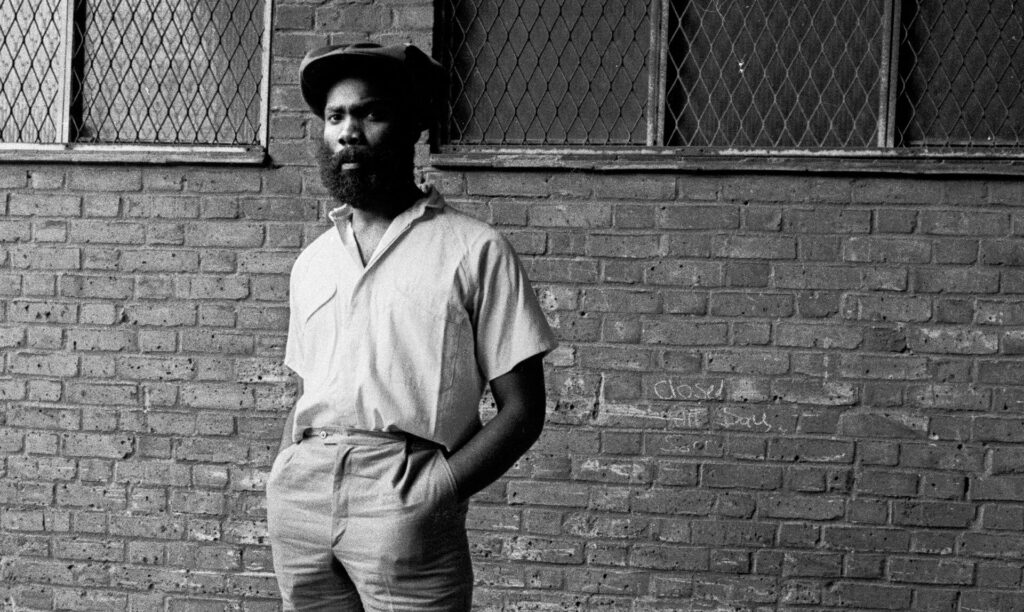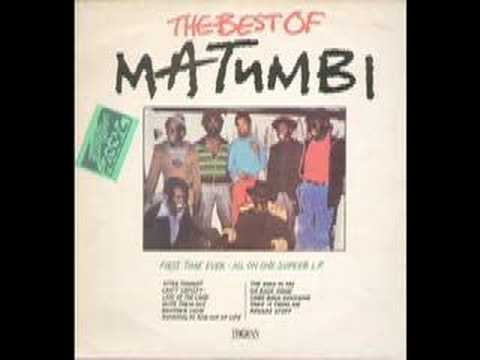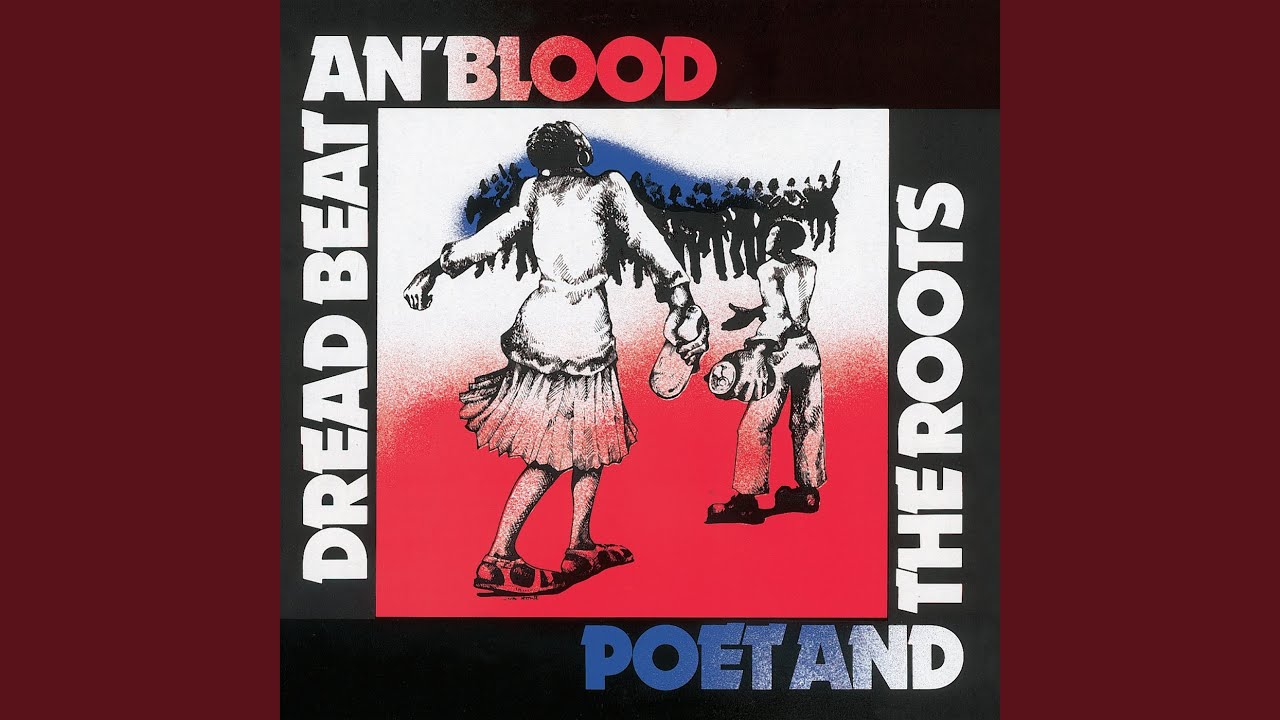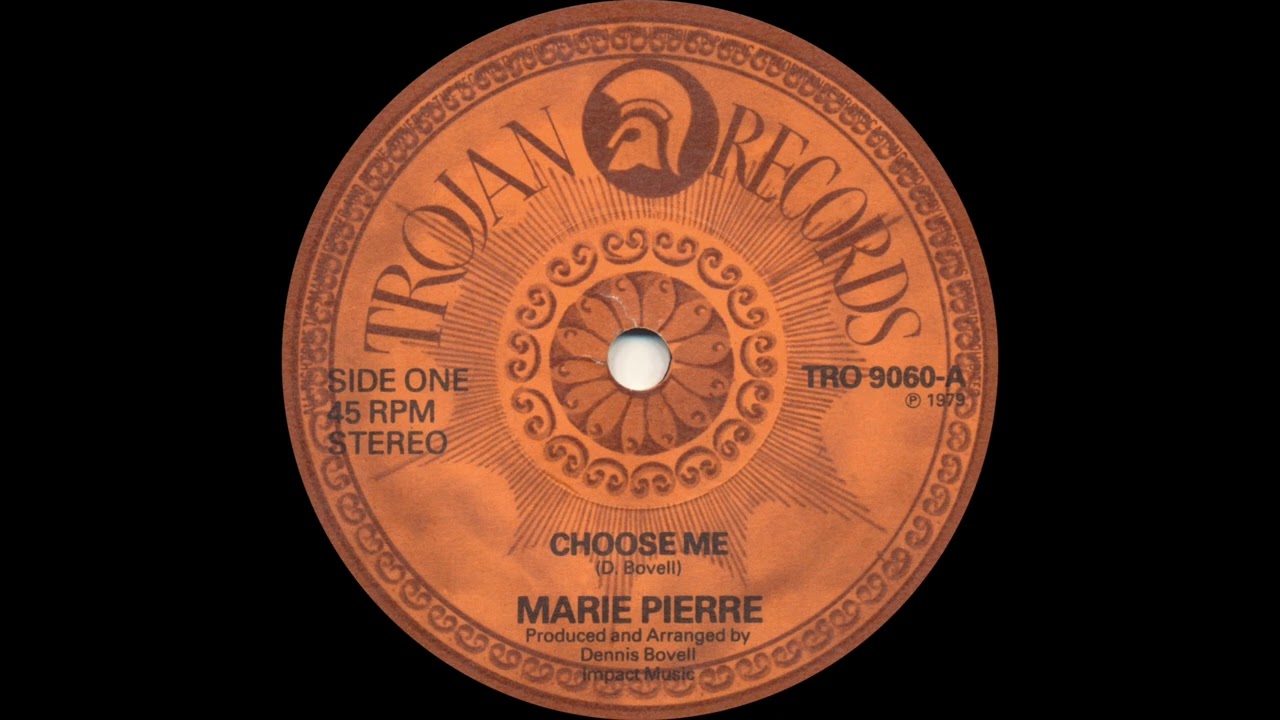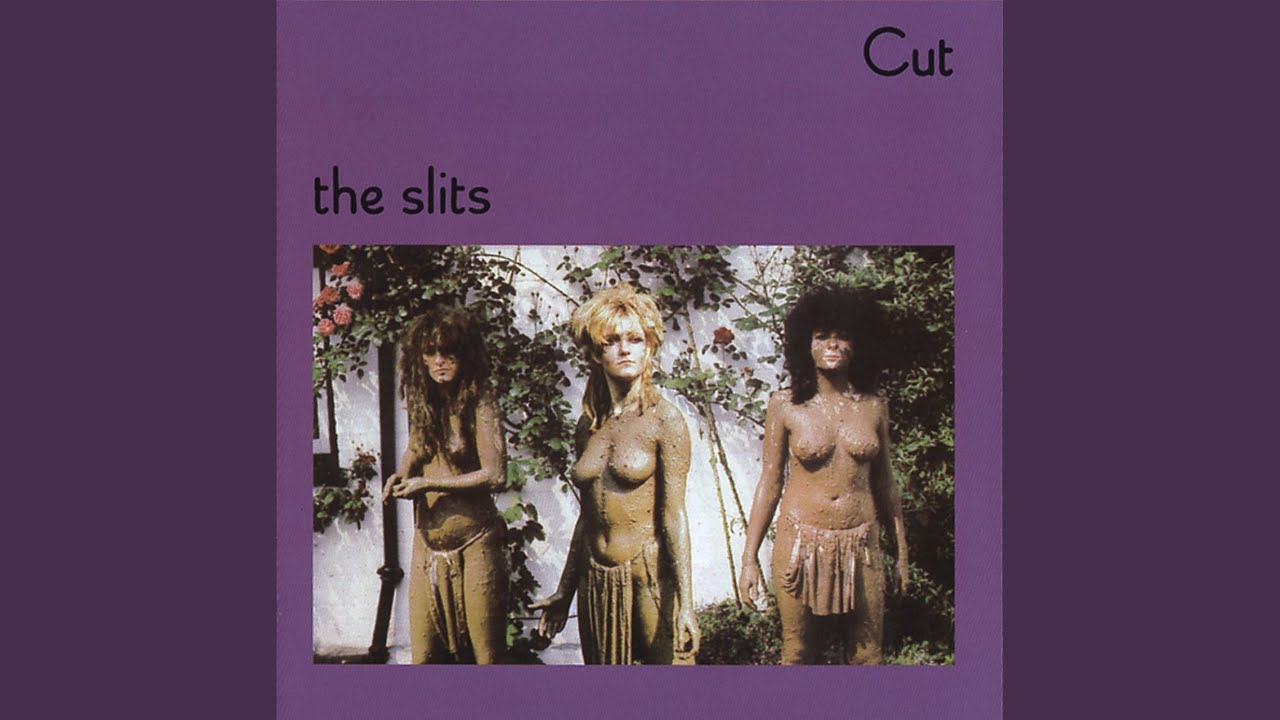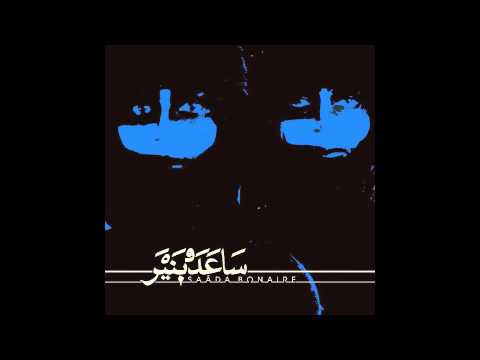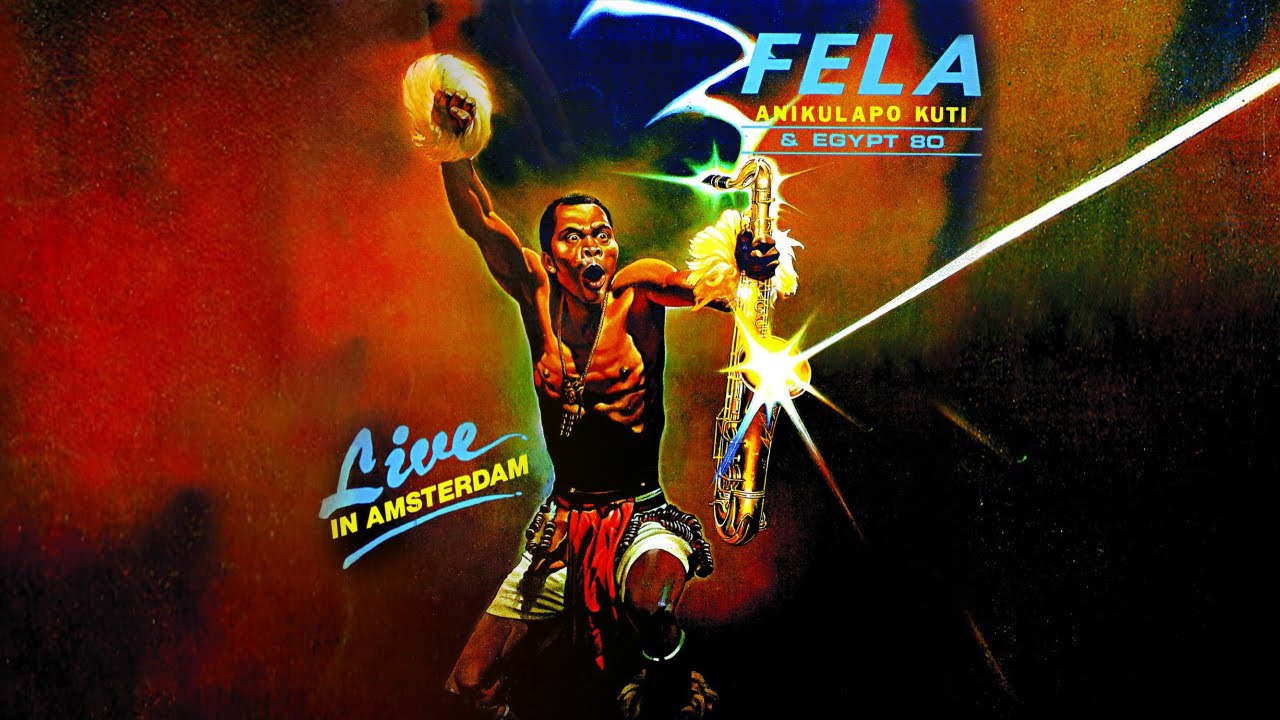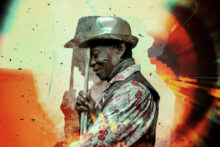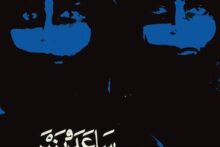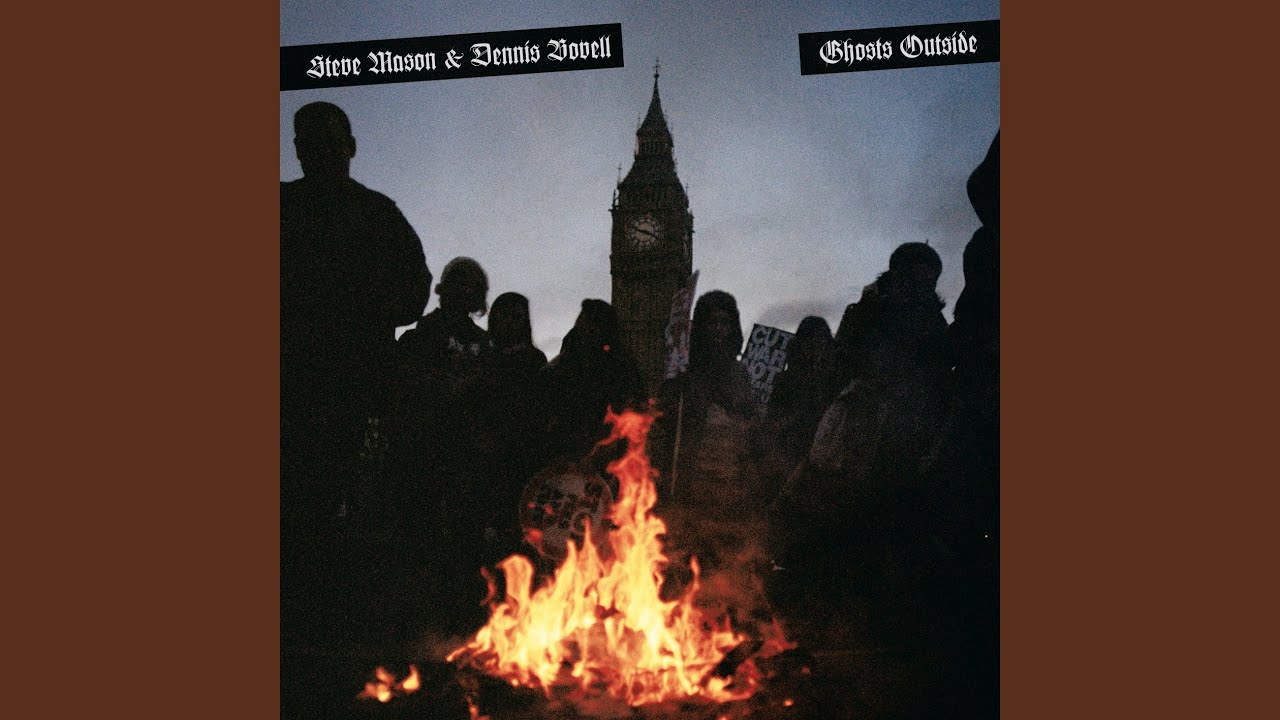Shortly after he arrived in London from Barbados in 1965, future dub and reggae producer Dennis Bovell set up the Jah Sufferer sound system. Similarly to the Upsetter label launched by Lee “Scratch” Perry, who was disillusioned with the state of the music industry in Jamaica, its name reflected the struggles and challenges faced by this free-spirited maverick.
Early soundsystem sessions at The Metro Club, on St. Luke’s Road in Ladbroke Grove were frequented by famous faces. “I remember Bob Marley was in London recording Exodus, and he took Friday night off to hear the sound system,” Bovell recalled to the Japanese blog Ban Ban Ton Ton. “‘Family Man’, Bob’s bassist, had slipped us sneak previews of some of the recordings, in an attempt to feel the crowd’s reaction to their new recordings. I wasn’t allowed to say Bob was in the building, but I was playing his music, and he was upstairs in the cafeteria shouting, ‘Yes man! Yes, man! More bass!’”
Bovell also formed Matumbi in 1971, and the collective made a breakthrough with cover versions of ‘Brother Louie’, originally performed by Hot Chocolate, and Bob Dylan’s 1970 song ‘The Man In Me’, initially intended for Bovell’s solo project.
His career as a musician and songwriter also went hand in hand with his work as a producer, where Janet Kay’s ‘Silly Games’ captured his trademark lover’s rock touch. Starting with Boccherini-esque arpeggio-led keyboards, it gracefully combines transparent sound, bouncy rhythm and sensual soaring soul vocals, and reached number two on the UK singles chart in 1979.
An alternative version of ‘Silly Games’ appears on Sufferer Sounds, a new compilation introducing new facets to Bovell’s work. Playfully titled ‘Game Of Dubs’, this variation was invented to be played on the Jah Sufferer soundsystem. “I guess it might have been an act of one-upmanship,” Bovell tells tQ. “If [there was] a soundsystem in the same room that would go, ‘Alright then, [play] your own tune’, then I would say, ‘Yeah! Listen to my own version of my own tune!’ People who were frequent listeners of my soundsystem knew about this version. It wasn’t for the consumption of the public until now.”
Among other tracks on the compilation are sought-after gems like bittersweet doo-wop-inspired ‘Cry’, performed by Angelique, an alias of singer Marie Pierre. Bovell, who along with Dennis Harris co-founded Lover’s Rock Records, is one of the pioneers of the eponymous movement that offered an alternative to reggae’s increasing politicisation. “By the time lover’s rock started, reggae had become biblical and very rasta-dominated,” says Bovell. “So smooth love songs were shelved aside. When you think back to songs by Gregory Isaacs, Dennis Brown, and Sugar Minott, they were songs to be in love with and to make a loving relationship.”
Bovell’s artistic vision, undeniable songwriting talent and a knack for diplomacy also helped to pave the way for successful collaboration with a wide range of artists, from I Roy and Fela Kuti to The Slits, Orange Juice and The Pop Group. In order to get to grips with a discography that’s as sprawling as it comes, we asked him to pick out ten of the finest specimens from his strange world.
Matumbi – ‘The Man In Me’ (1976)
A lot of people thought that Matumbi’s version of this Bob Dylan song was an original. We discovered it while listening to the radio on the way to a place called East Grinstead. It was a big thing for us because it was one of those times we were going to play out of town, in another place we hadn’t played before, and on came an a capella ‘The Man In Me’ sung by The Persuasions. It kind of resonated with me, and I thought it would be great to do a reggae version of it. I swiftly ordered the record through Reddings in Battersea [later Dub Vendor]. I didn’t know Bob Dylan had written that song. Someone said to me: “You know it’s a Bob Dylan song?” My hero Jimi Hendrix had done a Bob Dylan song, ‘All Along The Watchtower’. I was a fan of Jimi Hendrix, and still am, and I love his version of that song. So I thought “well… Jimi Hendrix has done a version of a Bob Dylan song, so can we…”
Poet & The Roots – Dread Beat An’ Blood (1978)
Linton Kwesi Johnson [dub poet and frontman of Poet & The Roots] was the first person who was brave enough not to sing but to speak about the experiences of many young Black people. Police would openly harass Black people. Black people had to try really hard to integrate into this society. Mixed-race couples had to do it on the down low. That was the spark of what was called a ‘race riot’ in Notting Hill. The title and themes on the band’s debut album refer to living in London, living in England full stop. Being a soundsystem operator, I was often in the dance doing the rebel thing, and then onstage with the band doing a rebel and lovers thing, to show how they were intertwined. The thing about doing lover’s rock and doing hardcore socialist comment, [was that] I thought that it was needed to show both sides, this fantastic beat and the revolutionary side, the lover’s side. Because a revolutionary is a lover. To be a lover can be a revolution. Both sides have something important to say. And I was a speaker in the middle, almost saying, “Now, let’s hear from lovers. Now let’s hear from the socialists. Now let’s hear from the microphone guys who just rap.” You know, guys like I Roy and U Roy.
Marie Pierre – ‘Choose Me’ (1979)
I walked into the [legendary lover’s rock institution] Gooseberry studio one day and my good friend John Kpiaye was doing a version of Marcia Griffiths’ song called ‘Peaceful Woman’. I kind of ridiculed it because I was like, “Why are you making a version of a song by the queen of reggae? You are doing another reggae version for the reggae market, what can you hope to achieve? Why don’t you, instead of singing that song on the rhythm track, write a new song?” My friend Dennis Harris said to me, “You always talk about writing new songs, why don’t you write one?” And I said, “I bet you I could write a song right now, to that rhythm track.” So we made a bet. He offered £100 claiming that I couldn’t do it. But I did. Straight away I started with: “Baby, it’s a sad situation I know, more than one man wants you so, all but one of us is gonna lose, but baby listen to my voice, you make the right choice, choose me.” Then I went to the vocal booth and sang it, with all those harmonies. I took his £100, and we went down to the pub and got some beers. Then Marie heard it and said she wanted to do it. Everybody refers to her as the singer of that tune, not knowing that I sang it first and that I wrote it!
The Slits – Cut (1979)
The production process was occasionally rocky, but today this record proves that it’s the sound we wanted. If I disagreed, I didn’t have to convince them or compromise. I’d just say, “Look, I’m the producer, you agree with me.” Sometimes they would say “fuck off”, other times they would say “alright then.” In the end, I did get on well with the band. I was able to show what they wanted, which was that I understood.
Various Artists – Babylon: The Original Soundtrack (1981)
I was the musical director of Babylon, a coming-of-age film about a reggae DJ, that had excerpts of music from Jamaica, excerpts of music that I made in London, and excerpts of music that was made in this country. When it came to releasing the soundtrack, I had the choice of just releasing the music that I had made or sharing the soundtrack of what was actually on the record and what was on the film. So I decided it has to have Yabby You, a Jamaican producer and vocalist.
Saâda Bonaire – You Could Be More As You Are (1984)
I went to Bremen in Germany to meet these young girls who had an idea to not sing but speak, a bit like Amanda Lear. They were going to do a disco with members of the Turkish National Orchestra involved. Bremen is the home of Beck’s beer. That’s all that many people know about this city. And there I was, surrounded by beautiful German performers who were not signing but talking. So, to get the beat that I wanted, I got drummer Richie Stevens involved. He was not a waver, he was like a machine. He later moved on to play with Boy George and produced his solo album This Is What I Do where I was invited to do vocals and contribute the bass.
Fela Kuti & Egypt 80 – Live In Amsterdam (1986)
A man by the name of Bob Currie came from Capitol America which was the flagship of EMI. He invited me to preside over the recording of Fela Kuti in Amsterdam. Fela was doing a concert at a very old venue called Paradiso. We installed the equipment there but noticed that the electricity was not up to what it ought to be, so it resulted in the buzzing of the lights. The noise came through the PA system. I asked the lighting engineer not to do much movement, just put the lights on, but he insisted that was his job. At some point, the man from EMI was about to start a fight with him. When we were back to the recording studio, I managed to filter out all the buzzing from most of the tracks but the bass channel had this awful grinding sound all the way through. Fela got very upset to the point he said he would go back to Amsterdam to argue with the lighting engineer. I suggested that I could replay the bass line which I did. So the credits list my name as a sound engineer and bass player even though I wasn’t on stage in Amsterdam.
Dennis Bovell – Dub Of Ages (1997)
The experience of working with Saâda Bonaire inspired me to incorporate some unusual instruments into my music. On Dub Of Ages, I’m playing Turkish saz. The thing about it is that after doing Saâda Bonaire there was one time at a studio when a saz player gave me a present – that very instrument. This one is used on the album.
Steve Mason & Dennis Bovell – Ghosts Outside (2011)
Daddy G from Massive Attack called me up and said, “I’ve got a friend who wants to work with you.” The friend turned out to be Steve Mason who had an idea to do a dub version of his song ‘Boys Outside’. Hence, the name of the project Ghosts Outside. Instead of doing just one song we did the whole Boys Outside album. I kept his voice, which is amazing, I kept a couple of the drum tracks but embellished most of them and replayed the bass lines as well as guitars and keyboards making them more reggae. So that was an exercise about how you can transform one style into another showing that all the dots and all the notes are the same but the beats can change to incorporate that.
Dennis Bovell – Sufferer Sounds (2024)
The compilation features collector’s items that were released on 100 to 200 copies each. I allowed Disciples [the label] to make them available to all people who are interested in me or in reggae on the whole. The tracklist was agreed upon by mutual consent. There are a couple of dub versions I did to play on my soundsystem, for example, ‘Game Of Dubs’ and ‘Crying’ [a version of Angelique’s ‘Cry’]. The compilation also features my first release as Dennis Curtis, a song called ‘Run Rasta Run’. It was my first recording with a drummer by the name of Jah Bunny. I just admired the way he played. My friend Mike Dorane invited me once to his studio in Camden, and Bunny was there. I asked if he wanted to help me with this track. By then, I only had a bass line. He heard it and just bashed it out. He sounded incredibly like Carlton Barrett, the drummer of The Wailers and the backbone of The Upsetters. While I was doing the vocals for ‘Run Rasta Run’, in the studio was a friend of mine who spontaneously invented this responding falsetto vocal part. So I overdubbed my main vocals with this backing line.
A new compilation of Dennis Bovell rarities, Sufferer Sounds, is out now via Disciples

